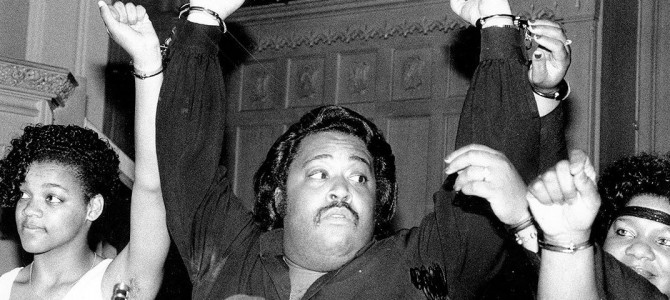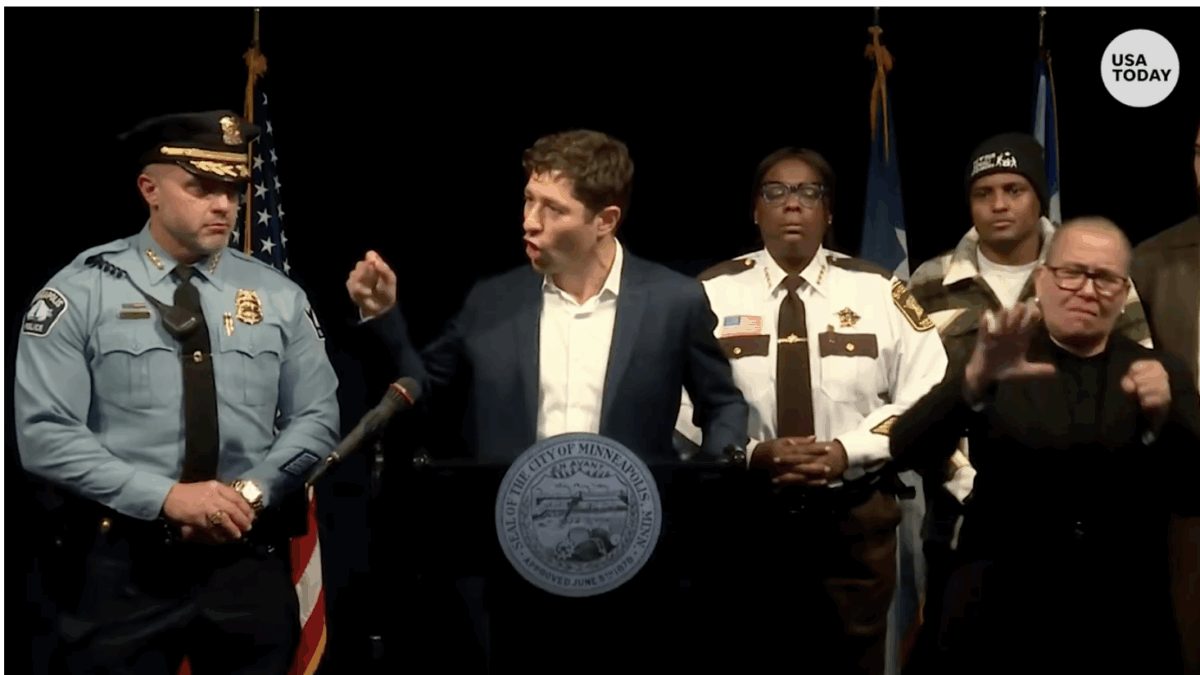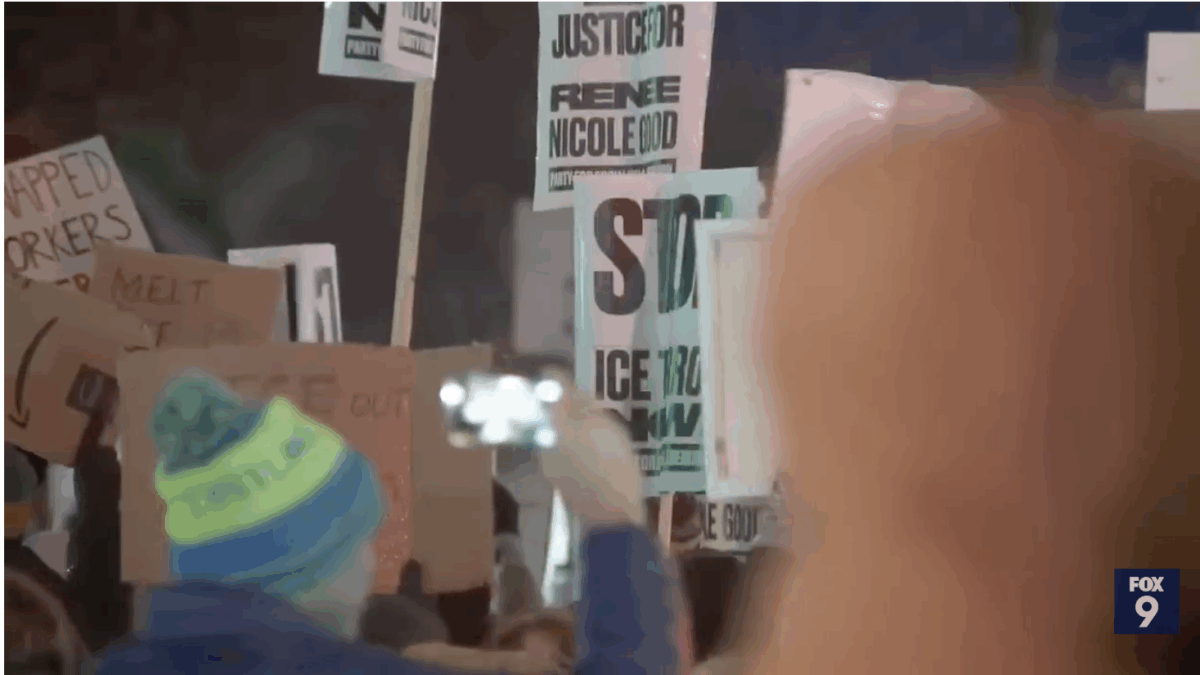
Soft obscurantism has defined the mainstream media for years now. Fortunately, the prestige press’ habit of getting snookered by hoaxes and half-truths hasn’t gone unchallenged.
Take the example of Jamie Leigh Jones. Journalist Stephanie Mencimer has a stellar piece in the upcoming Washington Monthly detailing two important aspects of the Jones saga.
Jones was 20 years old in 2005 when she claimed to have been gang raped by a group of men in the Iraqi Green Zone while working as a contractor for Kellogg, Brown, and Root, a subsidiary of Halliburton, the infamous Dick Cheney-affiliated company, which became the poster-child for the military-industrial complex propelling Iraq War.
Jones claimed that after she was raped she was held in captivity by KBR henchmen. Her story was disturbing enough that ABC 20/20’s Brian Ross — the reporter who later gained notoriety for incorrectly linking the Aurora, Colorado theater massacre to the Tea Party — picked it up.
Jones’s case drew attention not only because of the reports of her vicious rape, but because KBR was faulted for trying the case in arbitration, as per the rules laid out in government contracts. Jones’s rape story was a perfect microcosm of the rapacious corporation, and the story fit seamlessly with the media’s agenda.
Besides interest from major networks, Senator Al Franken and MSNBC host Rachel Maddow — to name Jones’s two biggest advocates — rallied behind her. Jones’s story became one of the segments for the Sundance Film Festival nominated documentary Hot Coffee,which focused on the pitfalls of tort reform.
The shadow truth
But, as Mencimer documents, the mainstream media championed Jones’s story when it bolstered friendly causes — undermining the Bush presidency and advancing the idea that ‘rape culture’ pervades society — and shrunk when holes appeared in Jones’s claims.
Witnesses in Iraq told authorities that Jones didn’t tell anyone that she’d been raped at the time she claimed it happened. She acted normally and admitted to fellow contractors that she’d had sex, seemingly consensually, with the man she later accused of raping her. A rape kit showed she had not, as she had claimed, been anally raped. She was diagnosed as a hypochondriac, and several times changed major details of her story. Jones was also found to have made several suspicious rape claims before her stint in Iraq.
Menciner committed a journalistic act of bravery in reporting the story. In her initial reports several years ago, the veteran Mother Jones reporter sided with Jones. But Menciner couldn’t deny the case’s underlying facts, and her corrections were an outlier.
“The media, which had played such a major role in publicizing Jones’s story, all but ignored the grand finale,” wrote Menciner who noted that 20/20 re-ran their award-winning interview with Jones on the eve of her civil trial while failing to follow up when the jury resoundingly acquitted the man she accused of raping her. The TV show ignored the reams of evidence undermining Jones’s claims.
Rachel Maddow, who Menciner noted used Jones’s case to accuse Republicans of being rape apologists, did not respond to several of Menciner’s requests for comment on her story. Brian Ross deferred Menciner to “a flack for ABC News” who did not answer any of her questions about the original flawed report.
This shrinking violet act seems pretty common. That ABC flack may or may not have been the same Disney employee I dealt with when I began looking into the causes of ABC’s poor coverage of the George Zimmerman case. I followed up with ABC’s lead reporter Matt Gutman whose pro-Trayvon activism was documented early on through his Twitter activities and his one-sided reporting. I was deferred as well to an ABC lackey who issued a blanket statement which steadfastly supported Gutman’s work.
The aversion to truth seemed to pervade Menciner’s own outlet. When Menciner first approached her editor at Mother Jones about writing a story on the case’s flaws, the editor asked “Are you sure you want to do that?”
Does it matter whether the crime occurred or not?
What perpetuates this obscurantism is its political utility. The mere dangling of stories serves a purpose.
Al Franken, who first heard about Jones’s case from the media, saw a silver-lining despite the massive fraud. “But the most important thing to me is that she got her day in court, as will countless victims of sexual assault, because of my legislation.”
Franken had fought to include an amendment in a spending bill which would ban the Department of Defense from contracting with companies the used arbitration to hash out sexual assault claims.
Responding to Menciner’s report, Paul Bland, a social justice advocate, avoided casting blame on Jones and focused on the usefulness of her case. “But most importantly, to me, the facts strongly support that forced arbitration of employment claims – like consumer claims, medical claims, and investor claims – is wrong,” wrote Bland.
Amanda Marcotte, who gained notoriety as the feminist who relentlessly demonized the white Duke lacrosse players who were falsely accused of rape by a black stripper, shied away from Jones’s dishonesty. “But the law that resulted from the situation, which forces these cases out of corporate arbitration and into court, is still good legislation,” she wrote.
To Franken, Bland, and Marcotte, Jones’s testimony was just a means to their noble ends. This mix-and-match morality seems a feature of the Left.
In his 1995 book, The Revolt of the Elites, Christopher Lasch noticed how the Left had reverted from even a “residual conception of truth” in the Tawana Brawley case in which the black teenager falsely accused six white New York City police officers of raping her.
“When the ‘rape’ of Tawana Brawley, proclaimed by Al Sharpton and Alton Maddox as a typical case of white oppression, was exposed as a hoax, the anthropologist Stanley Diamond argued in the Nation that “it doesn’t matter whether the crime occurred or not,” wrote Lasch.
What happened to Brawley “actually happens to too many black women,” wrote Diamond. Lasch cited William Kuntsler who also wrote that it didn’t matter whether the attack on Brawley actually happened. “[It] doesn’t disguise the fact that a lot of young black women are treated the way she said she was treated.”
After Stephen Jimenez wrote a recently-published groundbreaking book painting as myth the 15 year-old story that Matthew Shepard was the victim of a homophobic hate-fueled torture and murder, John Kruzel wrote at Slate, “And even if Shepard were not the victim of a hate crime there’s Supreme Court precedent showing that good law can sometimes emerge from a set of facts that are later discovered to have been inaccurate at the time of the court’s ruling.”
And two stories I’ve spent a lot of time working on carry this whiff of hoax masquerading as progressive shadow truth.
Though George Zimmerman has been acquitted of murder and manslaughter in the shooting death of Trayvon Martin, Martin supporters have gravitated towards the parts of the narrative which are useful to them. Even though ‘stand your ground’ was not relevant to the trial, the Martin family has set their sights on the law. Martin’s mother, Sybrina Fulton, is set to appear at a ‘stand your ground’ hearing being held by Illinois Senator Dick Durbin.
At The Daily Caller, I reported on a story about the Oberlin hate hoax. Back in March, major outlets like The New York Times and CNN reported on the alleged sighting of a person wandering around the liberal campus wearing KKK garb. That report turned out to be a mistake, but it revved up activism because of a series of racially-biased messages that had been left around campus the month before. The incidents led to the cancellation of classes for a campus-wide “Day of Solidarity”. School administrators called in the FBI, and the incidents are cited as evidence that the school has to do more to increase diversity and fix all social ill. But those incidents were carried out, at least in part, by a white male student with pro-Obama leanings. KKK-like figures were not roaming around Oberlin, but the administration and student groups didn’t let the incidents go to waste. These were teachable moments whether the underlying events were factual, fabricated or imagined.
Why the media falls for it
What makes progressives prone to reporting these hoaxes in the first place? And what makes them avoid a correction when one is needed?
First, advocacy journalists, which seems to describe more and more who enter the industry, will gravitate towards stories like Jones’s and Martin’s. They are often sold to reporters by advocates, people with an agenda. But when the agendas of reporter and advocate, the odds of a false positive increase.
Second, as Lasch noted, progressives and liberals — reporters and activists alike — are apt to see each case of evil-doing — rape, racist murder, racial intimidation, or homophobia — as a stand in for events that actually do occur in society. Evil happens regardless, and a moral relativism places no limitations on which actual set of “facts” must be used to prove the point. To them, proxies for truth are close enough.
Finally, there is no incentive for reporters to double back and correct their work. There is little demand from consumers for those types of correctives. Consumers likely don’t remember who issued a false report in the first place. And the reporters are bolstered by progressive activists who appreciate the shadow nobility of the reporting and will accept proxies for tragic stories. Would-be conservative critics have little impact on the market. When they call out journalistic sleight-of-hand they are quickly de-voiced as crackpots.
Which is what makes Mencimer’s reporting so refreshing.
Chuck Ross is a reporter for The Daily Caller News Foundation.









